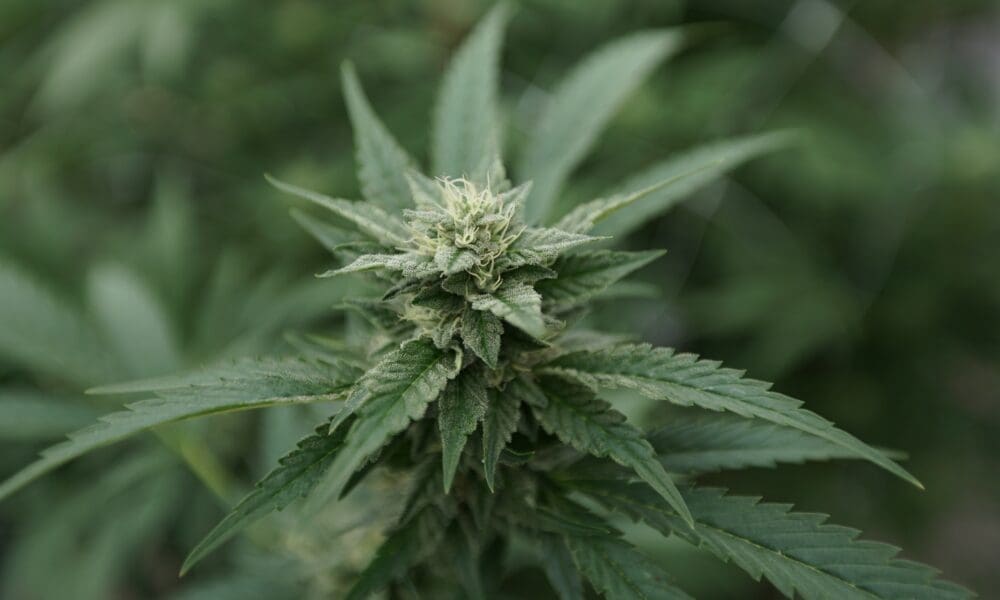Advocates are warning that a bill passed by Montana’s legislature aimed at reducing marijuana-impaired driving by people under 21 would put younger medical cannabis patients at risk and criminalize minors who may have used the drug days earlier but are otherwise entirely sober.
The state House of Representatives voted on Friday to pass the measure—SB 508, from Sen. Willis Curdy (D)—which the Senate approved in early March. It next proceeds to the desk of Gov. Greg Gianforte (R).
Reform advocates are asking their supporters to urge a veto from the governor, noting that the proposal includes mandatory jail time for offenders and claiming that young drivers could be tested and charged after an accident that wasn’t their fault even if they weren’t impaired.
The Marijuana Policy Project (MPP) said in an email about the bill that it would create an “extreme standard for drivers under 21, making it a DUI offense to have any detectable THC or certain metabolites in their system.”
“It would criminalize sober young drivers who are state-legal medical cannabis patients, people who tested positive after using legal CBD products, and people who were exposed to cannabis second-hand,” the group said. “Since THC can remain in the bloodstream and urine days after its effects have worn off, this approach would criminalize and incarcerate young Montanans who are completely unimpaired.”
Karen O’Keefe, director of state policies for MPP, said the House passed the bill after lawmakers made misleading statements about marijuana legality among people younger than 21 as well as circumstances under which minors would be tested.
In floor debate, Rep. Steven Kelly (R) said that marijuana use is already illegal for people under 21 and that minors would need to exhibit signs of impairment—such as bloodshot eyes or inhibited speech—in order to be tested.
But MPP points out that Illinois’s medical marijuana program allows patient use by people 21 and under with a doctor’s recommendation, and minors can also legally use hemp-based CBD products that in some cases can cause positive THC tests, especially when screening for trace amounts.
The group also noted that nothing in the bill appears to actually require evidence of impairment, meaning drivers could be tested even if there’s no sign they’re actually under the influence of the drug.
“There is no need for this unjust, overbroad law,” MPP said in its email, adding that “Montana already criminalizes impaired driving,” including with a per se THC blood limit of 5 nanograms per milliliter.”
MPP also put out a call to action asking supporters to urge Gianforte to veto SB 508.
Separately in Montana this session, lawmakers in both legislative chambers have advanced bills that would shift how marijuana tax revenue is allocated. Unlike earlier versions of the proposals, however, the latest would preserve funding for a group of Montana Fish, Wildlife and Parks programs,
Earlier this year, a coalition of conservation groups raised concerns about the governor’s office and state lawmakers reallocating the “historic investment” in the outdoors that cannabis revenue represents in Montana.
Two other controversial cannabis-related bills appear to have fizzled out for the session—one that would have set a 15 percent THC limit on all marijuana products and another that would have required adults to obtain a $200 license each year to legally use recreational cannabis.
—
Marijuana Moment is tracking hundreds of cannabis, psychedelics and drug policy bills in state legislatures and Congress this year. Patreon supporters pledging at least $25/month get access to our interactive maps, charts and hearing calendar so they don’t miss any developments.
Learn more about our marijuana bill tracker and become a supporter on Patreon to get access.
—
If approved, that bill—SB 433, from Sen. Greg Hertz (R)—would have set a 15 percent limit on total THC in all non-medical marijuana products. It would also clarify that “total THC” includes multiple forms of THC, including delta-9 THC, THC-A and THCP.
Under Montana state law, marijuana flower is capped at 35 percent THC, though other products in the state don’t have potency limits. Flower in most state adult-use markets typically contains between about 10 percent and 30 percent THC.
Another measure from Hertz, SB 255, was set for a committee hearing last week but appears to have been withdrawn from consideration. In response to an inquiry from Marijuana Moment at the time, Hertz replied simply: “SB 255 hearing was canceled.” He has not responded to multiple follow-up messages since then.
That proposal would have required adults to obtain a $200 license every year to legally use recreational marijuana. Montana voters approved adult-use legalization in 2020. Adults would pay the fee each year to the state Cannabis Control Division, which would enroll them in the program and issue ID cards.
Upon applying for the card, there would be a 60-day period where adults could access marijuana from licensed retailers. But if they don’t pay the fee by the end of that window, the division “shall cancel the temporary marijuana identification card.”
The text of SB 255 said that a “marijuana cardholder shall keep the individual’s marijuana identification card in the individual’s immediate possession at all times. The marijuana identification card and a valid photo identification must be displayed on demand of a law enforcement officer, justice of the peace, or city or municipal judge.”
“Voter outrage rightly killed these bills, which struck at the heart of the initiative 57 percent of Montana voters approved five years ago,” O’Keefe at MPP told Marijuana Moment at the time.
Photo courtesy of Chris Wallis // Side Pocket Images.
Advocates are warning that a bill passed by Montana’s legislature aimed at reducing marijuana-impaired driving by people under 21 would put younger medical cannabis patients at risk and criminalize minors who may have used the drug days earlier but are otherwise entirely sober. The state House of Representatives voted on Friday to pass the measure—SB Read More


